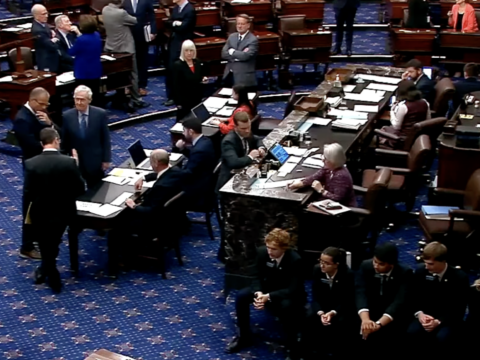MOUNTAIN VIEW, Calif. (Diya TV) – Google, led by CEO Sundar Pichai, took a firm stance against those who participated in protests against the company’s cloud contract with the Israeli government. 28 employees were terminated. The protests, led by workers affiliated with the No Tech for Apartheid campaign, saw demonstrations in various Google offices across New York City, Seattle, and Sunnyvale, California.
CNBC reports Nine Google workers were arrested on trespassing charges after staging a sit-in that included a protest in Google Cloud CEO Thomas Kurian’s office.
The Alphabet unit confirmed that a small group of protesting employees disrupted work at unspecified office locations, violating company policies. Google emphasized that impeding other employees’ work and blocking access to facilities is unacceptable behavior.
After conducting individual investigations, Google decided to terminate the employment of the 28 workers involved in the protests. However, the company stated that it would continue to investigate and take further action as necessary.
The protests centered around Project Nimbus, a $1.2 billion contract awarded to Google and Amazon.com in 2021 to provide cloud services to the Israeli government. Protesters argued that the contract supports the development of military tools by the Israeli government.
In response, Google maintained that the Nimbus contract does not involve highly sensitive or military-related workloads. The company clarified that the contract is not aimed at projects relevant to weapons or intelligence services.
This is not the first time Google has faced internal dissent. In 2018, employee activism successfully pressured the company to shelve a contract with the U.S. military, known as Project Maven, which involved analyzing aerial drone imagery for potential military applications.
The recent protests have reignited debates about employee activism within tech companies. Some argue that tech workers, given their unique roles, should have a say in how their work products are used, particularly when it comes to potential military applications.
Despite Google’s response, the fired employees and their supporters have continued to voice their opposition to the Project Nimbus contract. They argue that the contract goes against their moral principles and raises concerns about the ethical use of technology.
In the aftermath of the protests, discussions within Google about the Middle East conflict have sparked mixed sentiments among employees. Some have expressed pro-Palestinian views, while others have defended the company’s business decisions. Internal forums have seen debates on the appropriateness of discussing such sensitive topics in the workplace.



